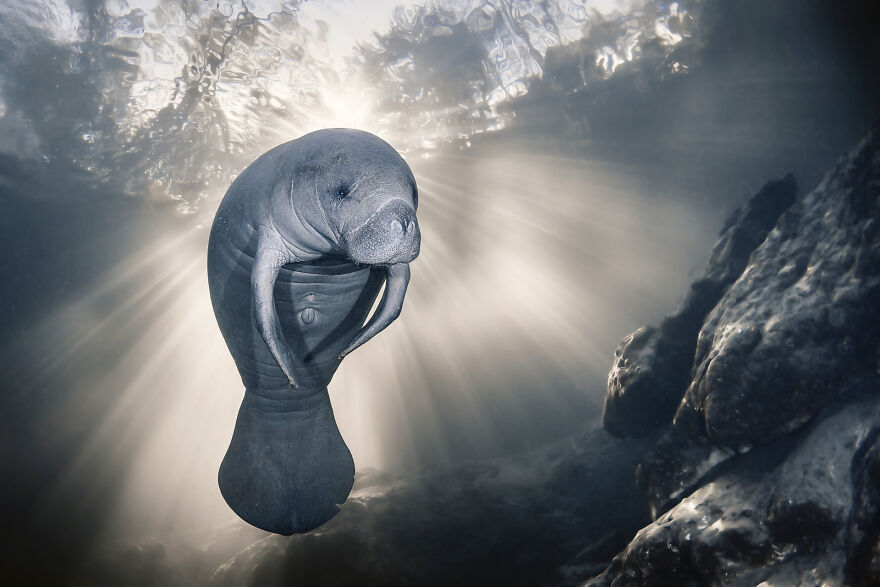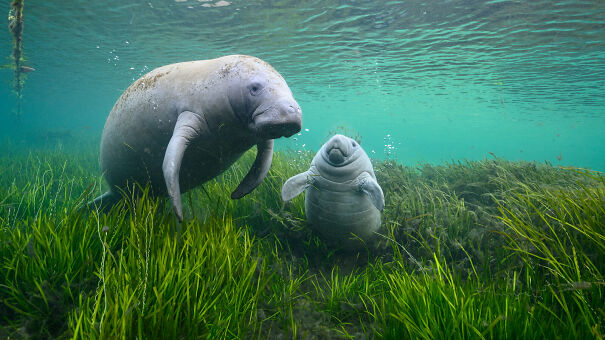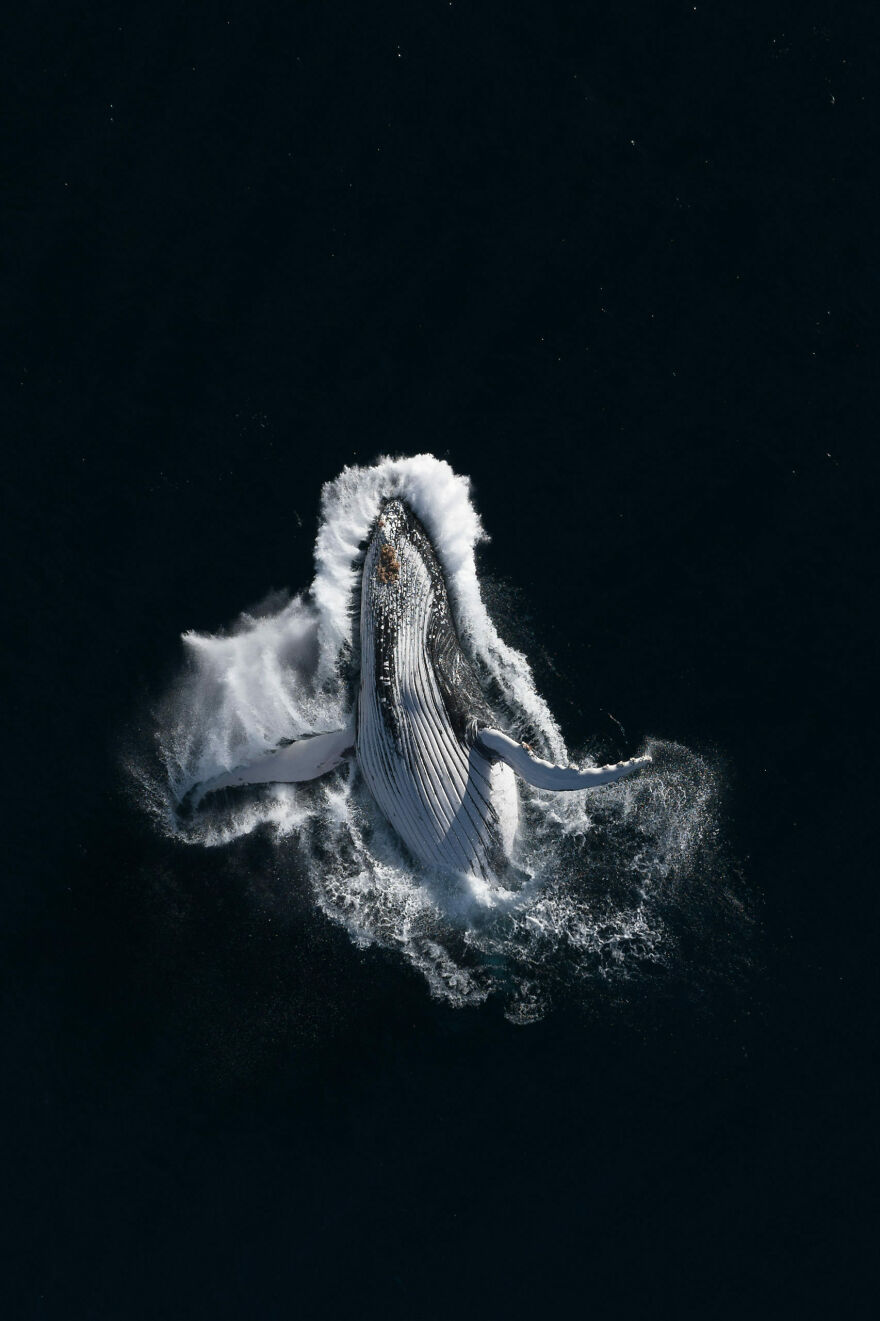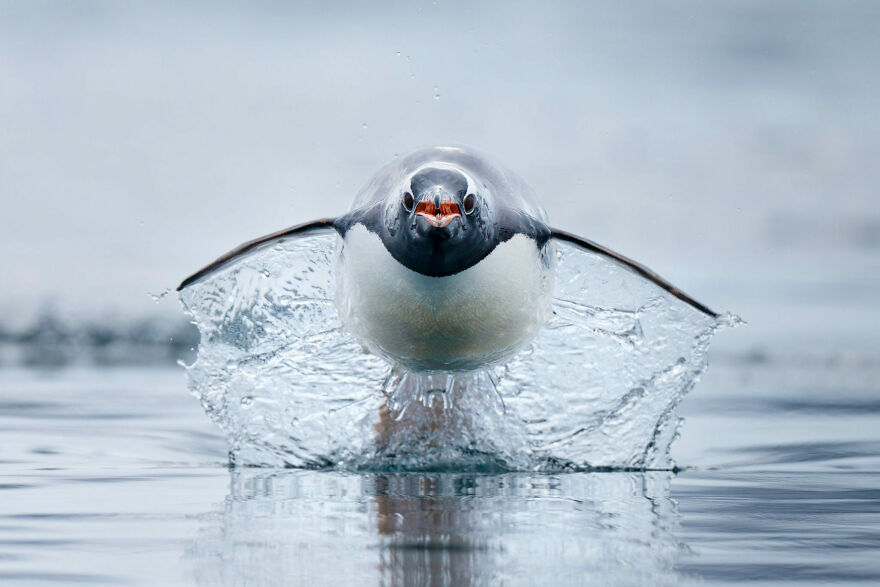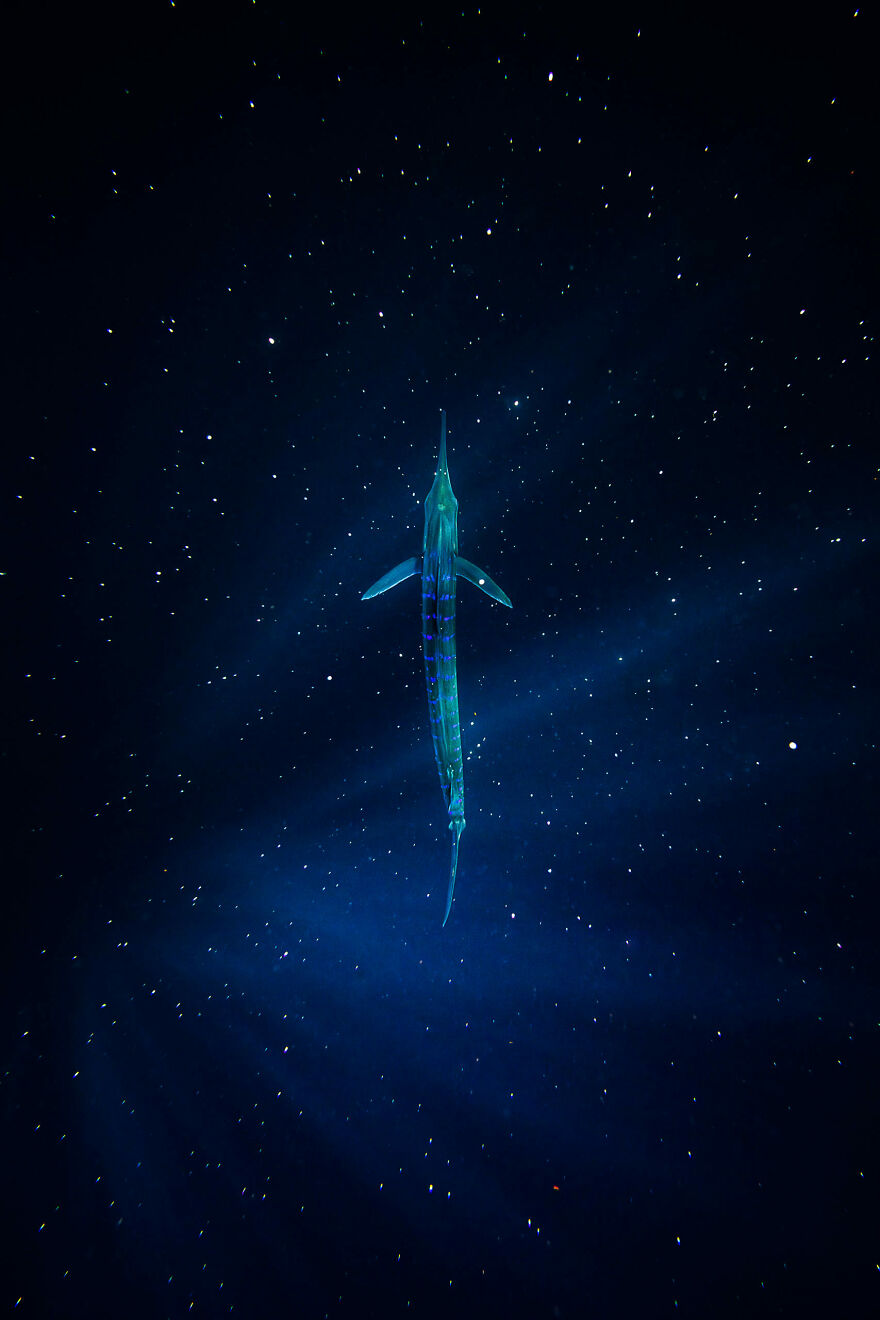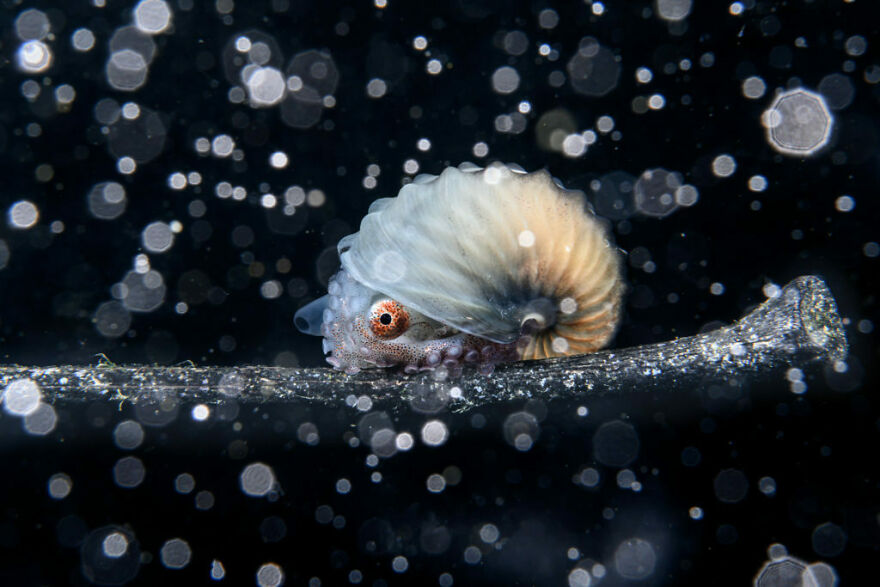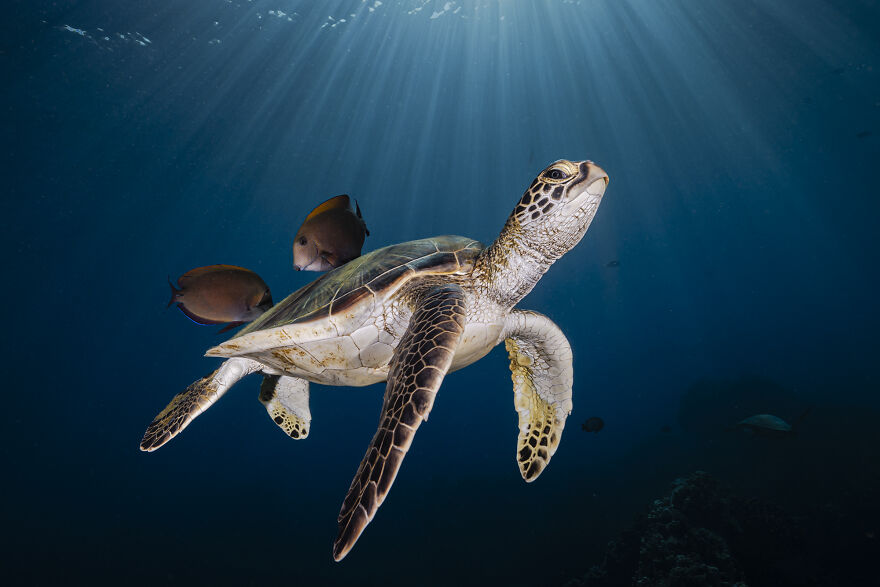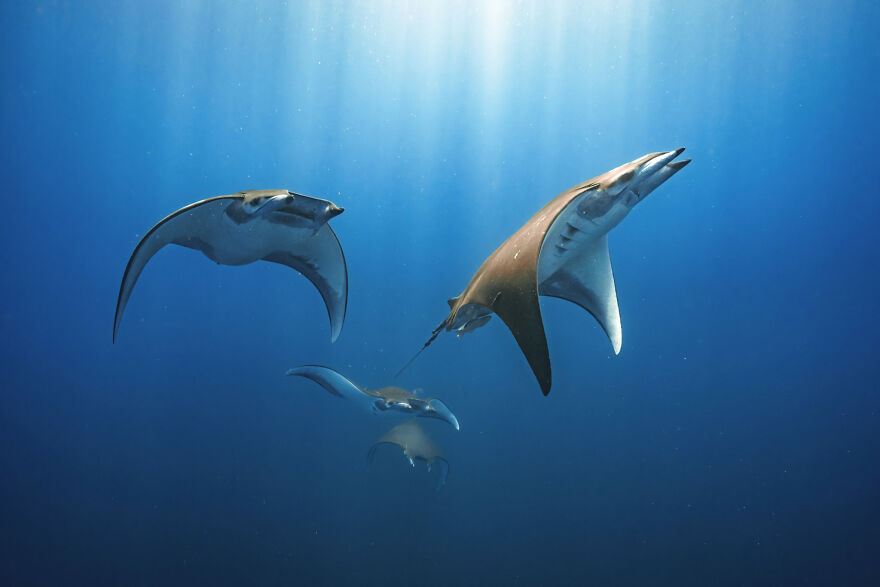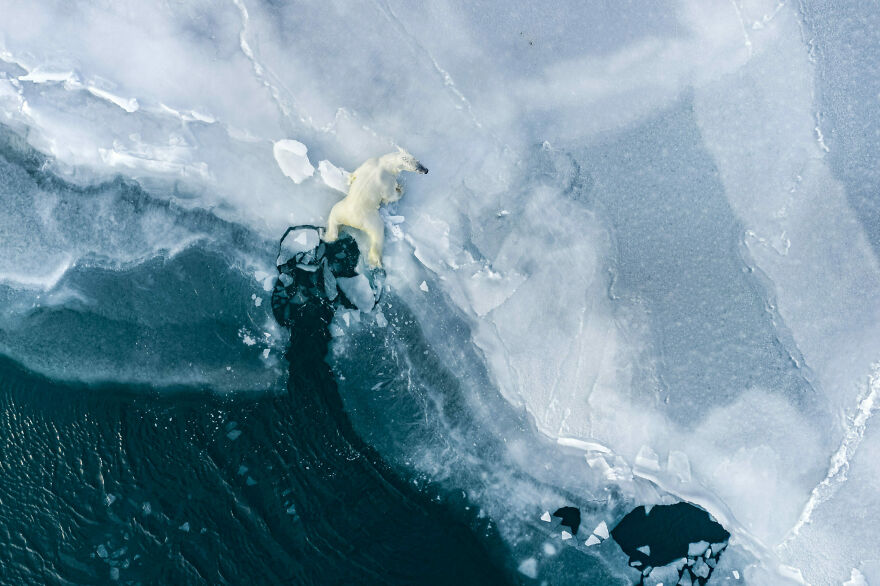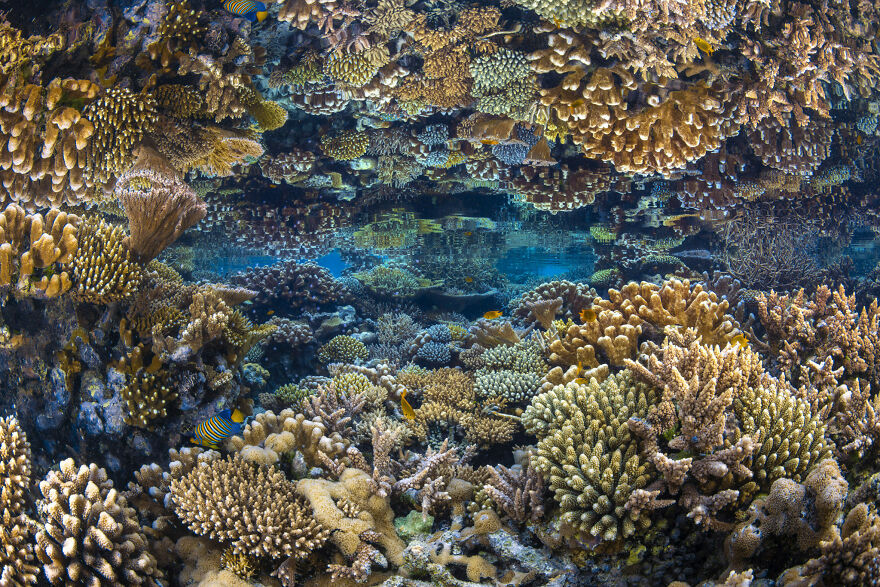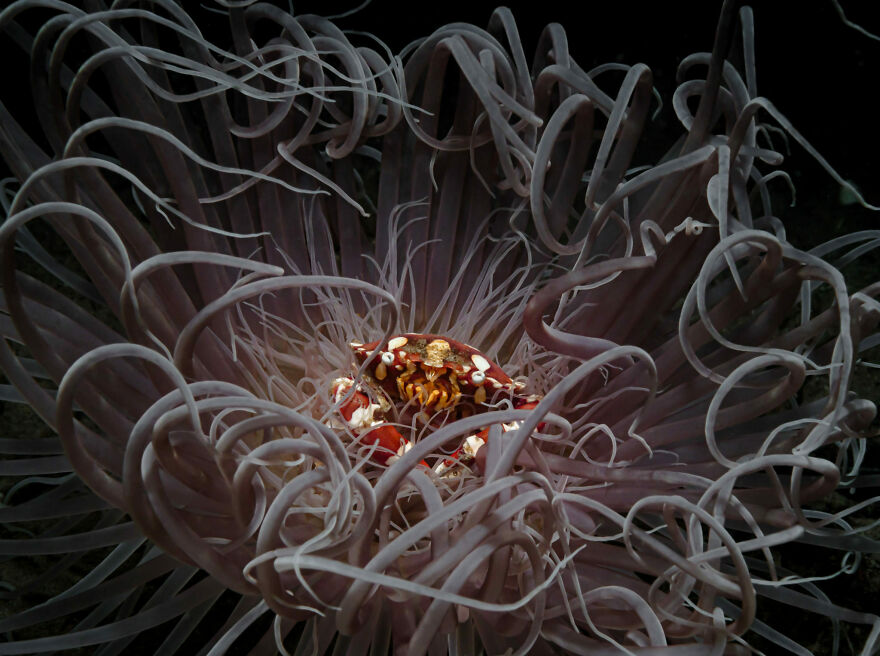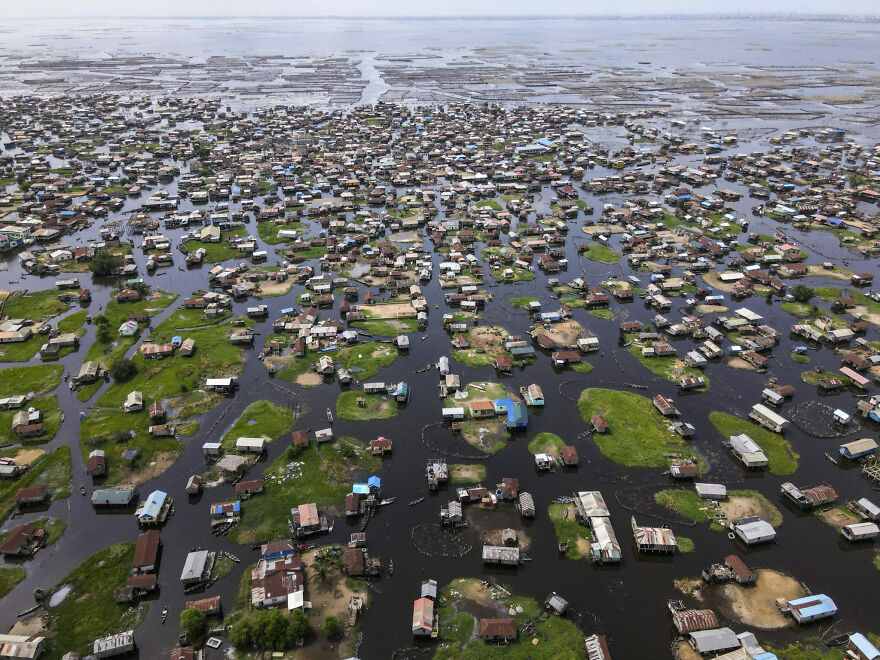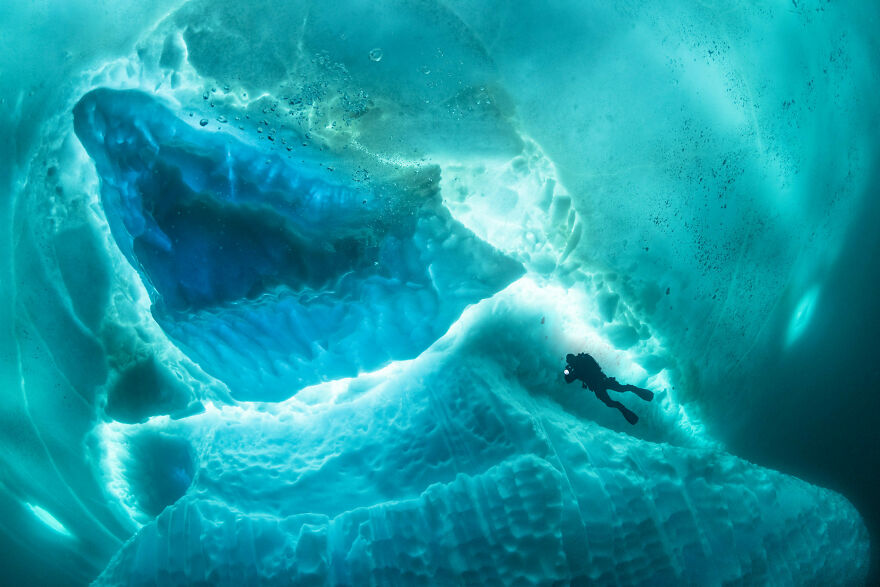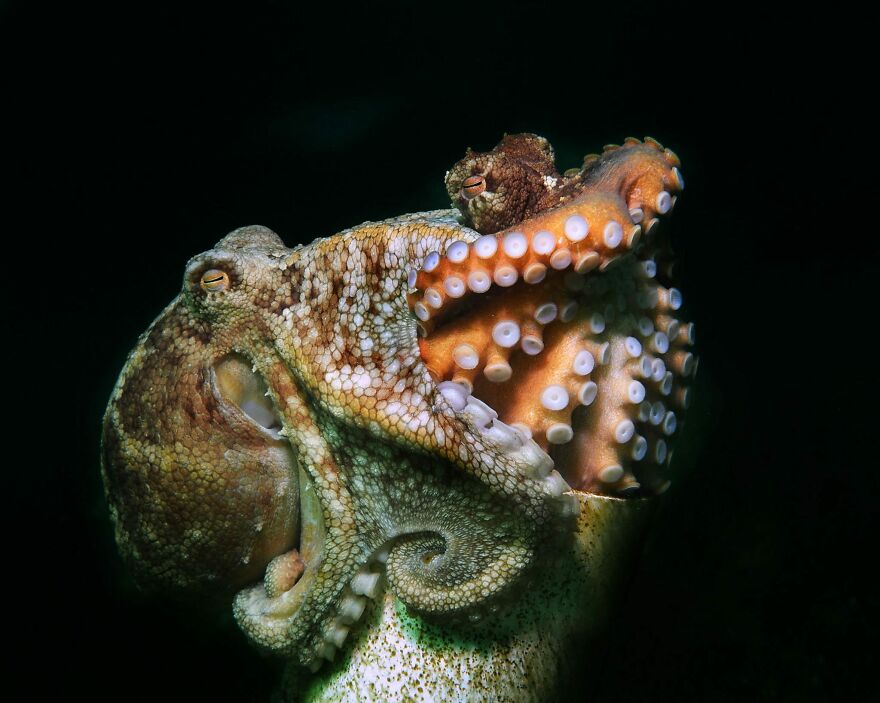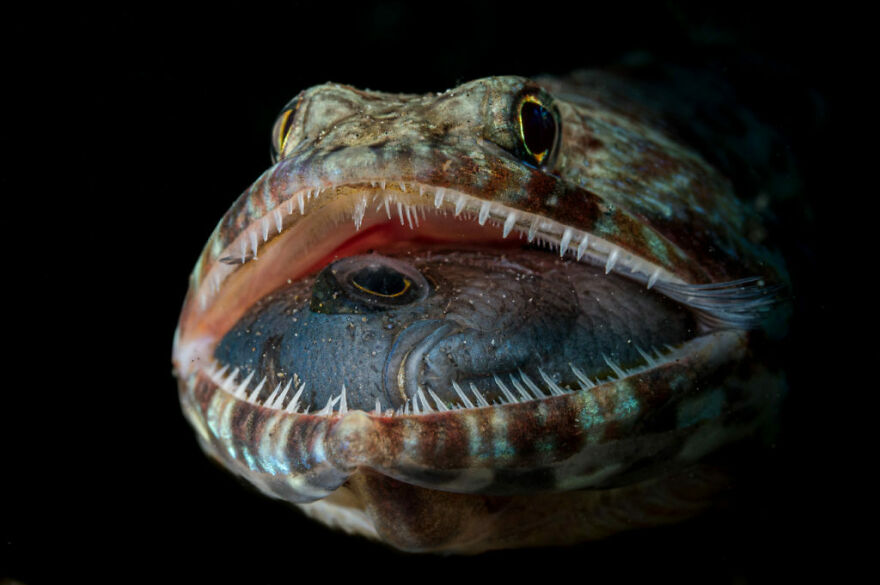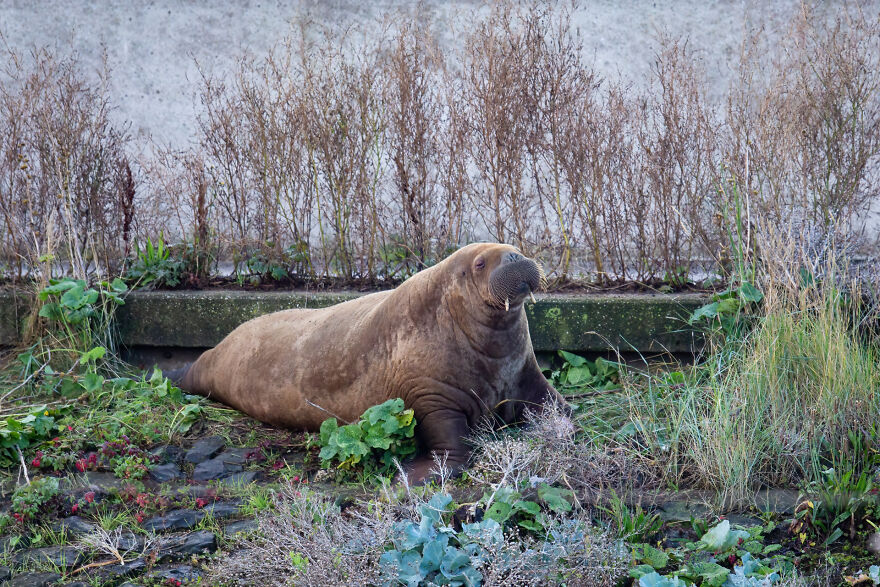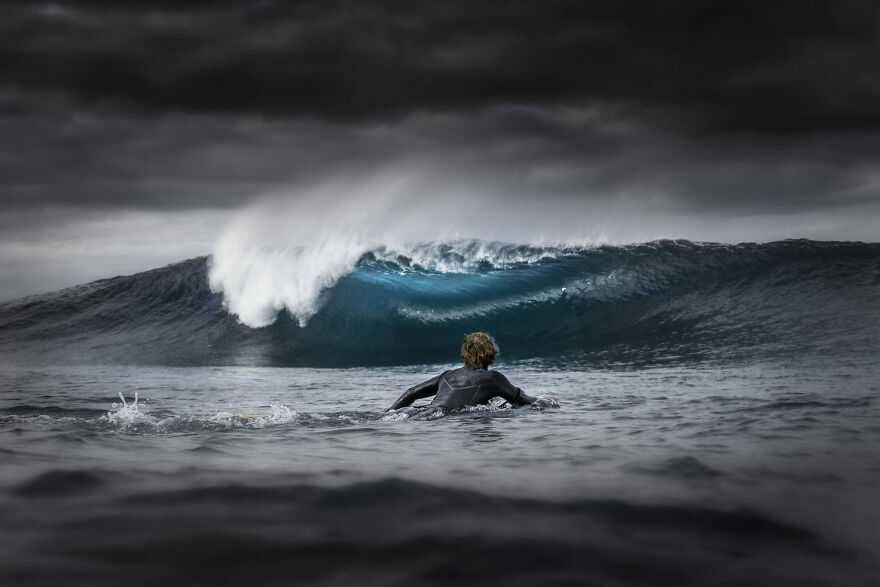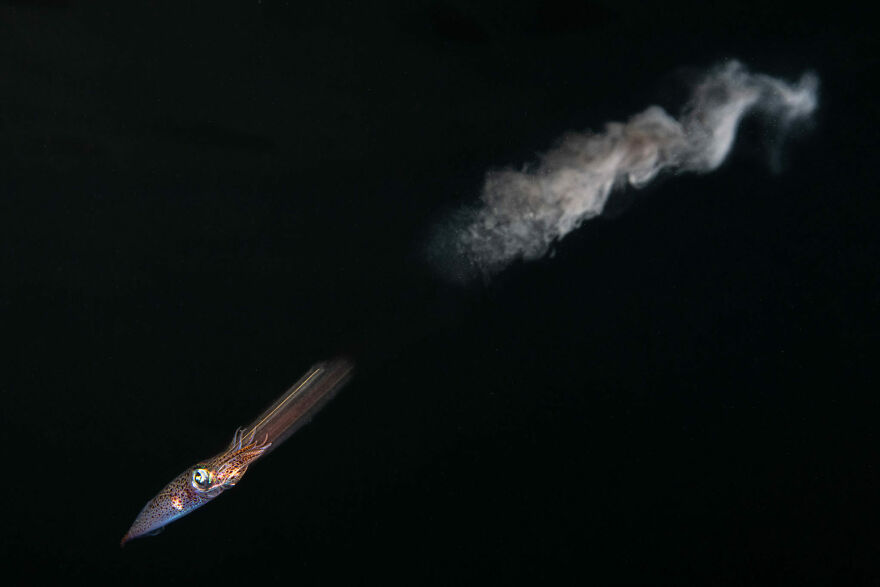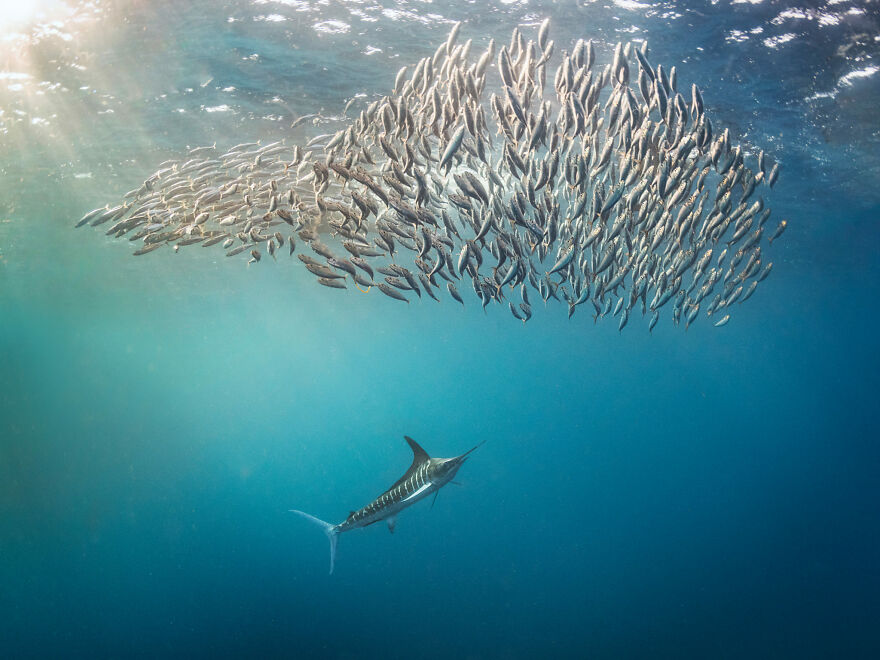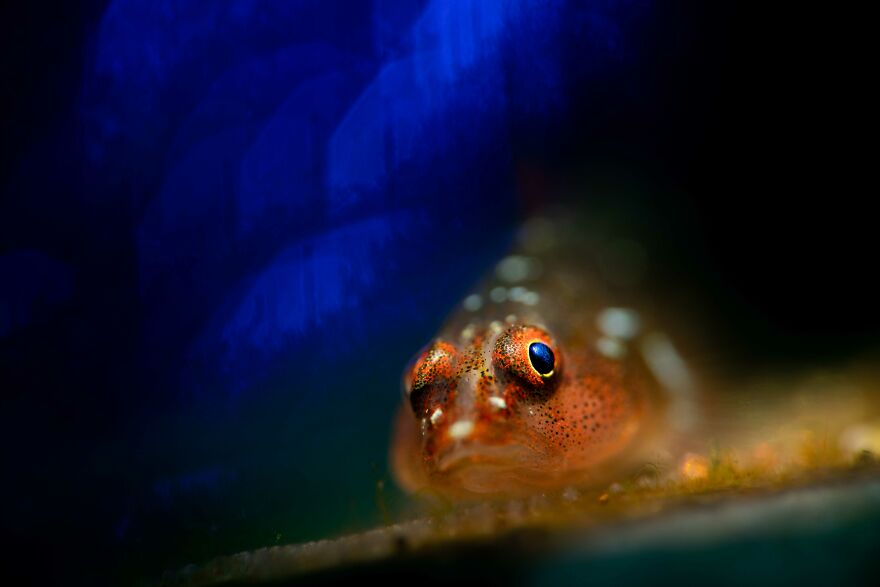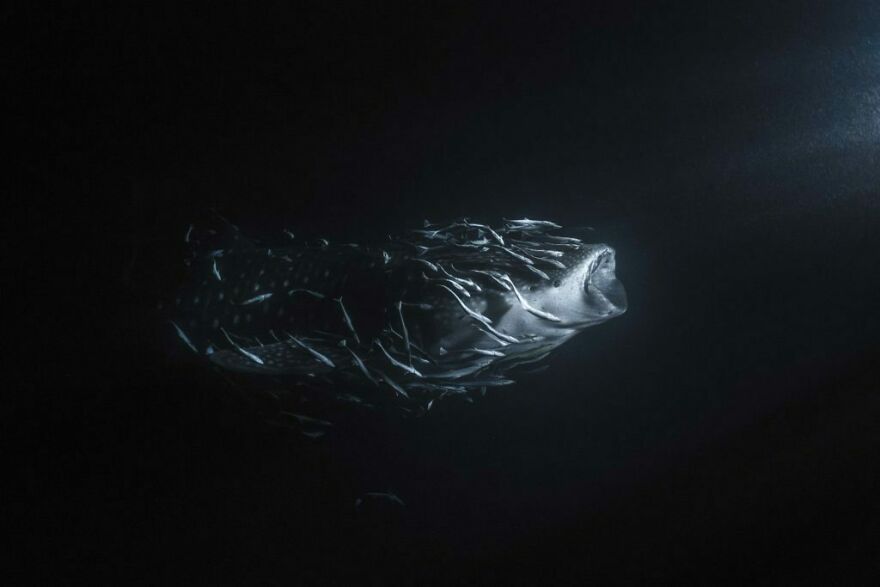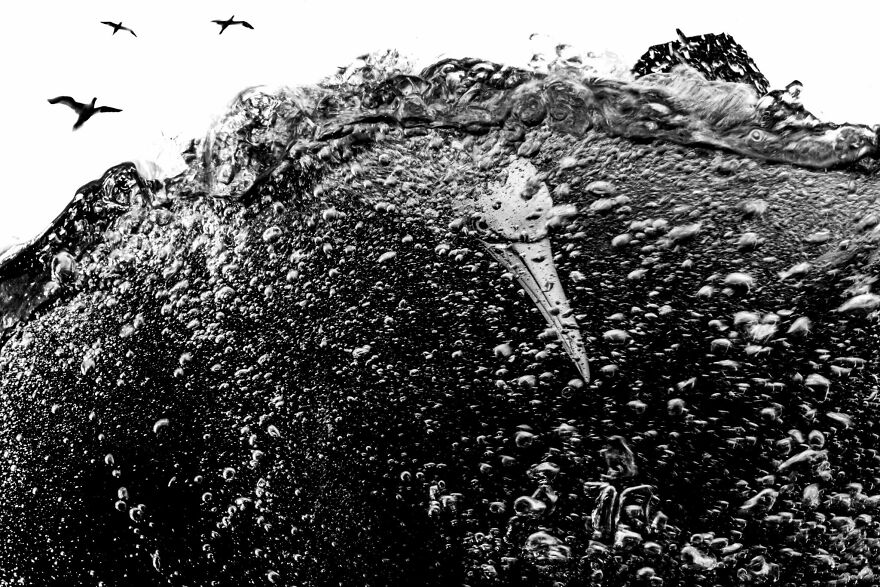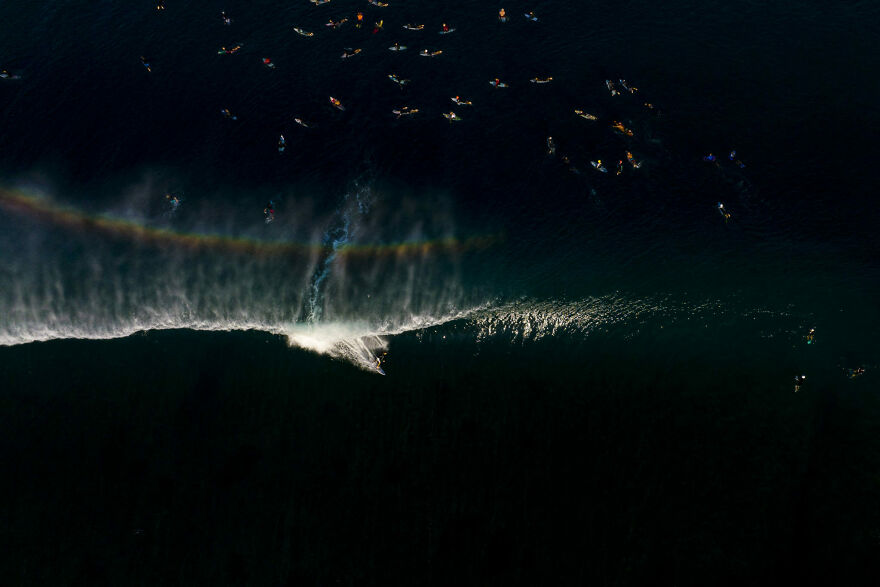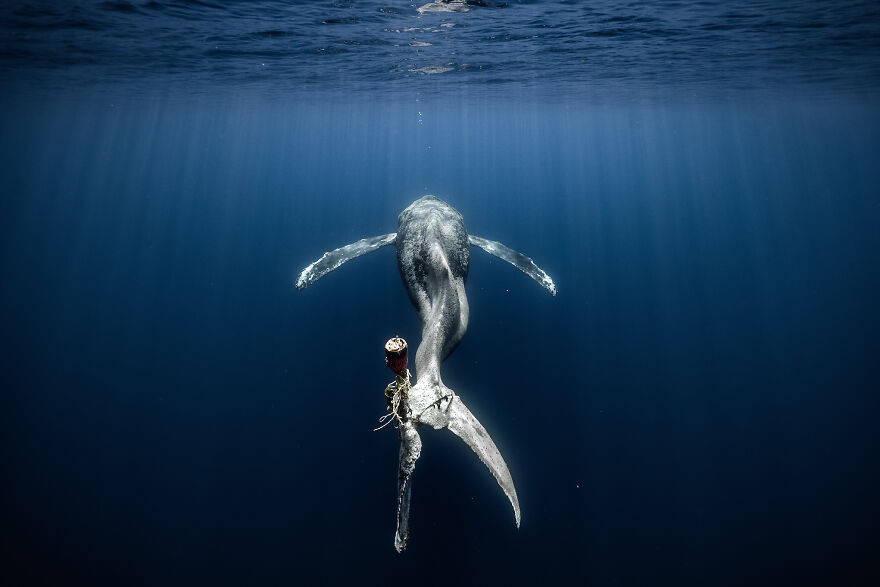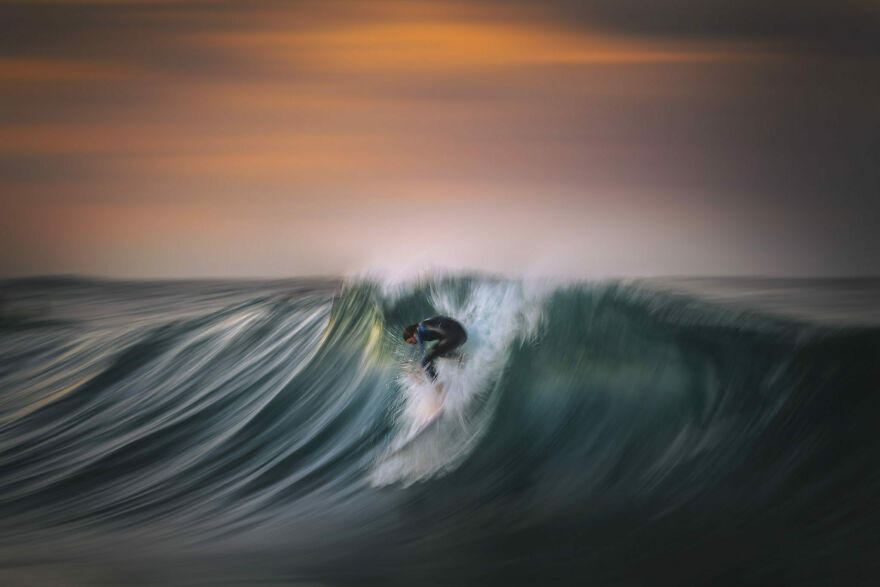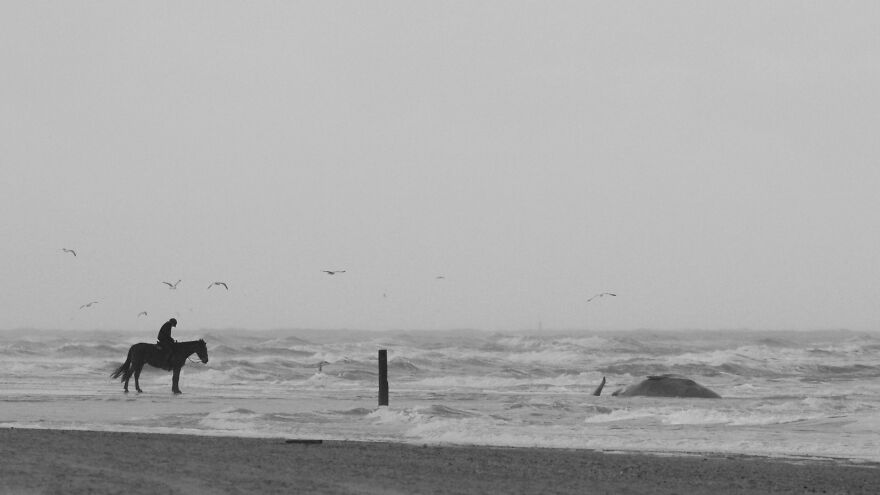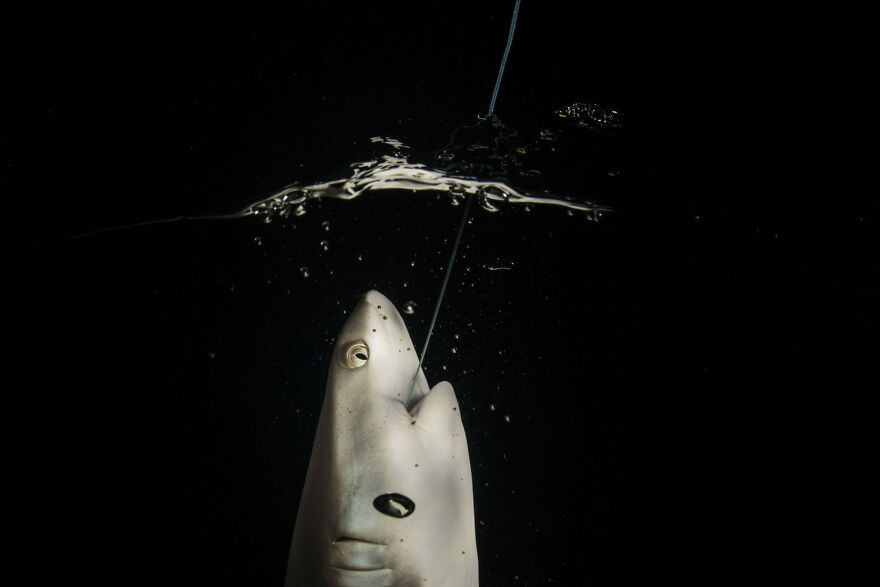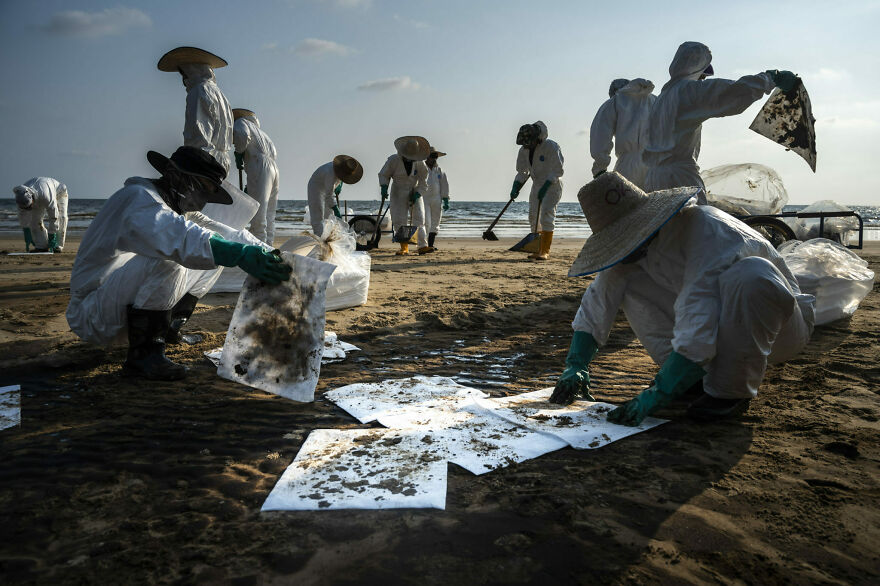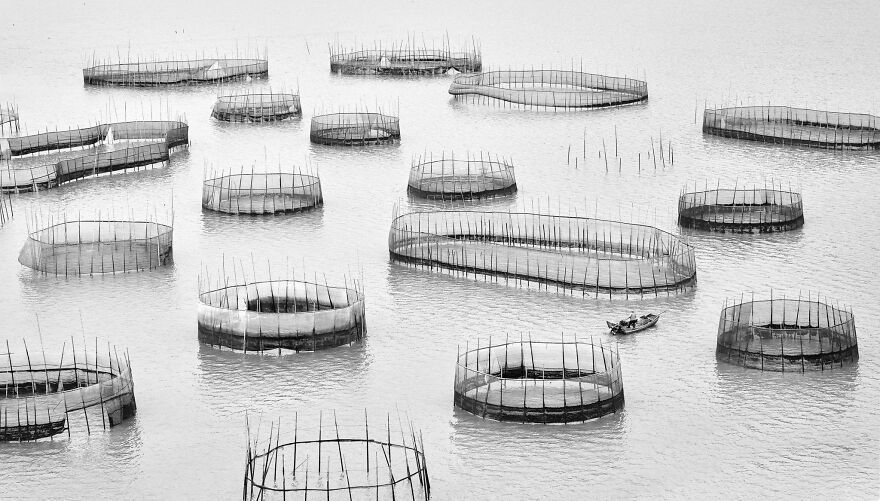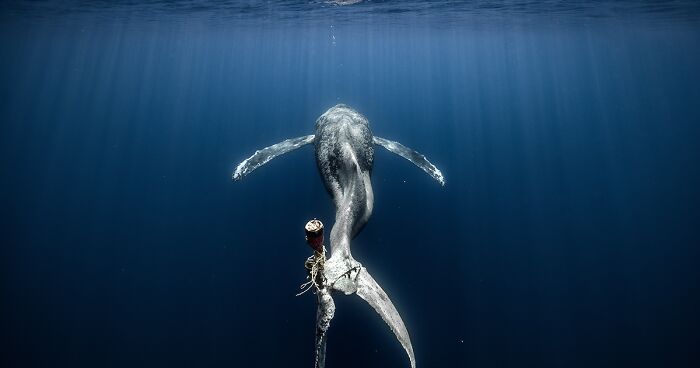
28 Breathtaking Images Taken Of Marine Life That Won The Ocean Photography Awards 2023
InterviewOcean photography lets us dive beneath the surface and see what lives hidden in the deep, blue, massive waters.
This year's annual Ocean Photography Awards, organized by Oceanographic Magazine, announced their winners, who not only capture marine life but also draw attention to many of the environmental problems that we currently are facing.
This year, the contest had nine categories, and the overall winner, the Ocean Photographer of the Year, was a 25-year-old marine biologist and amateur photographer - Jialing Cai. The Australian National Maritime Museum is hosting an exhibition including all of the winners' beautiful photographs, which will end in May 2024.
So, without further ado, we invite you to explore this year's aquatic life through the eyes of these talented photographers.
More info: oceanographicmagazine.com | Instagram | twitter.com | Facebook | Instagram
This post may include affiliate links.
Conservation (Hope) Photographer Of The Year, 1st Place Winner Sylvie Ayer
"I went to Florida with one dream: to capture beautiful images of manatees," says Ayer. "With a local friend, we saw several manatees. The manatee in the picture came close to look at me and was suddenly perfectly positioned in front of the sun's rays. I hope this photo helps raise awareness of the need to protect these mammals."
Bored Panda reached out to Sylvie Ayer, the 1st place winner in the category ‘Conservation (Hope) Photographer of the Year’, who shared some insights into capturing the winning photo of a manatee.
We asked Sylvia to tell us what inspired her passion for conservation photography, specifically focusing on marine life, such as manatees. Sylvia responded: “The ocean offers us incredible riches. Unfortunately, humans destroy them selfishly. The majority of the population does not know marine life. By taking pictures of animals, and especially those in danger of extinction, I hope that humans will become more aware of the urgency of protecting them.”
Wildlife Photographer Of The Year, 3rd Place Winner Nicholas Holton
"One of the ocean’s largest mammals, the humpback whale, lands gracefully on its back after launching its enormous frame out of the depths of the Pacific Ocean," says Holton. "Studying whale behavior and understanding their motivations for breaching, coupled with endless hours spent optimizing flight and camera settings, helped to freeze this beautiful moment in time that I call ‘Imprint of a Giant’. The annual humpback whale migration up the east coast of Australia sees Sydney come alive with ever-increasing numbers of whales, bringing joy to everyone along the way."
Wildlife Photographer Of The Year, 2nd Place Winner Craig Parry
"Surrounded by diverse wildlife in Paradise Bay, a raft of energetic gentoo penguins charged towards our inflatable," says Parry. "Getting low on the boat, I prefocused my lens anticipating the moment. Freezing the fastest penguin species in the world head on wasn’t easy as they raced at speeds of over 20mph towards me. An epic moment as I maintained focus and composition and fulfilled my gentoo vision by locking in a dynamic front-on portrait that surpassed even my wildest visions."
The natural lighting and composition made Sylvia’s image look divine. We asked the photographer to describe the process behind capturing this manatee and the role natural lighting played in enhancing its impact.
“That morning it was very cold in Florida. Indeed, there was a very cold wind all over the eastern USA. When we got to our little boat there was even frost on it. I never thought I would see frost in Florida. So we rushed to load all our gear onto the boat. We sailed the river looking for manatees. When we found some, we went into the water as gently and slowly as possible so as not to disturb them.
We swam slowly towards them and kept a sufficient distance. The light was indeed beautiful this morning, one like magic. A manatee saw me and came to me as if to look at what it was. I think this light brings hope for the conservation of this species and a very strong emotion. I even have a person who wrote to me that it was 'the sacred manatee'.”
Fine Art Photographer Of The Year, 2nd Place Winner Alex Postigo
"Off Baja California Sur in Mexico, marlins annually congregate to feed on bait balls," says Postigo. "After they diminish the fish present in quick and elaborate hunting rituals, only scales are left. Here, a blue marlin swims beneath the ocean’s surface, fish scales - resembling a starry sky - raining down around it."
This is the most beautiful one, I think... Just something about it.
The Ocean Photographer Of The Year, 1st Place Winner Jialing Cai
"Following the Taal Volcano eruption in the Philippines, the water column filled with particles from stirred-up sediment," says Cai. "Navigating through the low visibility and dense fog during a blackwater dive, I found this female paper nautilus taking a ride on a drifting wooden stick. When I pressed the shutter, the particles reflected my light. The scene felt unusually serene following the natural disaster and reminds me of a fairytale set in a snowy night. As underwater photographers, we aim to shoot in clear water but this image reminds us that grains of sand, organic matter, or tiny organisms are integral parts of the underwater environment. I aim to accept their presence and seek non-disruptive ways to incorporate them into my images."
All the particles look like stars surrounding her in the black of night!
We were wondering what Sylvia’s opinion is on how photography can serve as a catalyst for raising awareness about the conservation of marine mammals like manatees. Sylvia wrote: “Most humans are unaware of the animals that inhabit the oceans. Hundreds of manatees die every year in Florida. Either because they are injured by boats, or because they can’t find food because of the water pollution, etc…. I hope that awareness comes very quickly to better protect them. I know that already in Florida many people are fighting for their protection.”
Ocean Portfolio Award, 2nd Place Winner Renee Capozzola
"A young green sea turtle comes in close for a portrait in Maui, Hawaii where sea turtles thrive thanks to their strong legal protections," says Capozzola. "This image was taken at Mala Pier in Lahaina, which collapsed in 1992 during Hurricane Iniki and now serves as an underwater reef, encrusted with corals and providing a habitat for animals to rest, feed, and hide. Numerous turtles also frequent the area to get cleaned. This turtle is getting cleaned by two black tangs in the water column close to the surface."
Well, you never really know, but when they know, you know, y'know? crush-656f...804d43.jpg 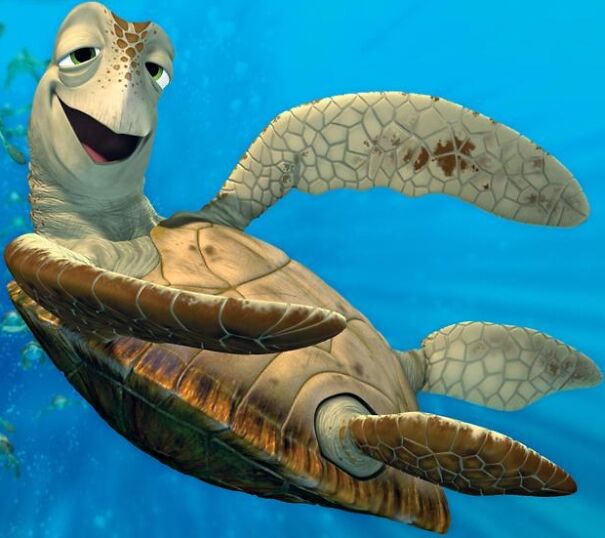
Female Fifty Fathoms Award, 1st Place Winner Merche Llobera
"In the Pacific Ocean's crystal clear waters, these four Chilean devil rays glided gracefully around me," says Llobera. "With my camera ready and my body submerged, I waited for the opportune moment to freedive and capture the sublime beauty of their aquatic ballet."
And lastly, Sylvia shared challenges and memorable moments that she encountered while trying to capture this photo.
“The challenge was the icy wind that was blowing that weekend. I’m Swiss. I left my country for Florida in the winter. And I never thought I’d be able to live through that cold there. I didn’t bring warm enough clothes. Luckily under the water, it was okay. It was better than outside.”
Conservation (Impact) Photographer Of The Year, 1st Place Winner Florian Ledoux
"In the breathtaking Arctic landscape of Svalbard, Norway, a poignant scene unfolds," says Ledoux. "In this impactful capture, we glimpse both beauty and fragility, a stark reminder of the urgent need to preserve this majestic realm urging us to safeguard our precious Arctic for generations to come. The polar regions are vital for the entire planet. Without the icy regions, the stability of our world is collapsing."
Conservation (Hope) Photographer Of The Year, 3rd Place Winner Gabriel Barathieu
"I wanted to take this perfectly mirrored picture for a while now," says Barathieu. "I already located the right spot for it, but had to wait for the great low tides which only occur two or three times a year. To create this mirror shot, I had to wait for all the ripples to fade. For that, it was necessary to move as little as possible. I had to completely exhale the air from my lungs so that I would sink without stirring up any sediment. I waited in expiratory apnea for at least a minute before taking the shot with a perfect angle of the camera."
The Ocean Photographer Of The Year, 2nd Place Winner Andrei Savin
"Sea anemones and their symbiotic inhabitants are my favorite targets," says Savin. "A large anemone is like an apartment building with many different inhabitants establishing different relationships and relying on each other’s character. It's interesting to watch the same creatures day after day and I love to study them as they evolve. On this day I took dozens of shots of an anemone with different settings. Suddenly, as if by magic, a crab came out and sat right in the center. I just had to press the button."
Human Connection Award: People & Planet Ocean, 2nd Place Winner Ioannis Pavlos Evangelidis
"This aerial shot shows just a small part of Ganvié, a floating village in the north of Benin," says Evangelidis. "It is said to have about 30,000 inhabitants. The houses are built on wooden stilts and any sign of land is brought in by the inhabitants. The fertile water allows for fishing and small-scale pisciculture which is the primary subsistence and economic activity for these people."
Pisciculture: the controlled breeding and rearing of fish. I learned a new word today!
Adventure Photographer Of The Year, 3rd Place Winner Franco Banfi
A scuba diver swims close to an iceberg in Tasiilaq, East Greenland. "Approximately 90% of the ice mass of an iceberg is hidden below the surface," says Banfi, "and I wanted to show these Arctic giants from a new perspective. Underwater, their structures are completely different and their shapes and textures are constantly changing. You quickly notice that every iceberg is alive; they creak, move, and breathe. When you’re down there listening to the crackling from this frozen fortress, you feel very small."
Conservation (Hope) Photographer Of The Year, 2nd Place Winner Jules Casey
Two pale octopuses sit on a pipe. "The story behind this image is one of an ingenious conservation effort," says Casey. "Two divers had the idea to build an artificial reef at Rye in Port Phillip Bay to attract octopuses to the area and provide them with a safe place to reproduce. Virtually overnight, the artificial reef exploded with marine life. The pale octopuses loved their new safe environment and quickly dominated the reef. Several pipes were secured to provide a place for these octopuses to lay their eggs. In my photograph, a male approaches a female during their early courting stages. After mating, the female eventually settled in the pipe and laid her eggs."
Upvote for Rye in Part Phillip Bay. Famous as the site of a massive yearly migration of spider crabs.
Wildlife Photographer Of The Year, 1st Place Winner Jack Pokoj
A lizardfish’s open mouth reveals a surprise. "It seemed that the lizardfish was trying to swallow the other fish tail-first before it got stuck in its throat," says Pokoj. "Both fish looked to be in some distress. Lizardfish are ambush predators and swim away if a diver gets too close, so this behaviour was highly unusual. The lizardfish kept its mouth open as if it wanted the fish inside its mouth to escape."
Conservation (Impact) Photographer Of The Year, 2nd Place Winner Jeroen Hoekendijk
"Far from home, this female walrus hauled herself onto a concrete pier in the harbour of Harlingen in the Netherlands," says Hoekendijk. "The animal appeared to be in good nutritional condition and was regularly seen feeding on razor clams. Framed by her unexpected surroundings, she takes on a noble, almost melancholic position. The scene reminds me of a museum diorama. Months later, she was spotted off Oslo. By this time, she was named Freya after the Norse goddess of beauty and love. Despite her immortal name, the Norwegian government made the widely-criticised decision to 'euthanise' her to 'protect swimmers'. Freya was shot with a rifle."
Young Photographer Of The Year, 1st Place Winner Jarvis Smallman
"For years I watched this wave from land just about any chance I could get. I studied the forecasts meticulously, learned about the swell sizes and directions, tides, and wind conditions. One day, it all lined up perfectly and me, and bodyboarder Jarrad Linton went out to finally photograph the wave from the water. Big storm clouds blocked the sun and an electric blue colour came through the wave. I was stunned by the beauty of the scene. As Jarrad was paddling out, this perfect set came rolling in and I pressed the shutter. "
Young Photographer Of The Year, 2nd Place Winner Aaron Sanders
"Like a bolt of lightning piercing black clouds, this small common squid exploded onto the scene before me," says Sanders. "Jetting around, it refused to stay still, seemingly intent on exploring our torch light. After observing its movements for some time, I decided to try to capture its trail of motion using rear curtain sync. After a few attempts, I was having some success. Then, all of a sudden, as I pressed the shutter, the little squid shot off jetting a plume of ink into the black water."
Ocean Portfolio Award, 3rd Place Winner Kat Zhou
"Every year, Baja California is home to one of the largest sardine runs in the world, attracting predators like sea lions, whales, and striped marlin," says Zhou. "On this occasion, several striped marlin circled below, taking turns rushing up into the baitball to hunt. I dove down when I saw one of the marlin starting to make its way toward the baitball and captured this photo."
Young Photographer Of The Year, 2nd Place Winner Jake Brandwine
This super macro image shows a vibrant goby against a blue background that complements the orange hues of the goby. "The goby's eye coincidentally blended with the background," says Brandwine. "Though I initially wanted a head-on shot with both eyes in focus, the angled perspective beautifully complemented the background."
Fine Art Photographer Of The Year, 1st Place Winner Jade Hoksbergen
"At night in the Maldives, bright lights shine down into the water as fishermen seek out baitfish for the country’s sustainable pole and line tuna fishery," says Hoksbergen. "The light attracts plankton, which in turn attracts small fish. On occasion, they also bring in the largest fish in the ocean - whale sharks. While they were a nuisance to the fishermen in the past, a positive solution has been found by combining the two most important industries in the Maldives: tourism and fishing. Now, when a whale shark shows up at night, the fishermen call the team at COMO Maalifushi and eager guests are able to see and swim with an ocean giant. While taking this photograph, I was enveloped in darkness. I felt dwarfed in the shark’s presence."
Fine Art Photographer Of The Year, 3rd Place Winner Henley Spiers
"Hidden yet unmistakable, a Northern gannet stares through a cloud of bubbles," says Spiers. "The bubbles were created by gannets, Britain’s largest seabird, diving in pursuit of fish. The silhouettes in the sky complete the story."
Gannets and boobies hunt by plunge-diving, where they position their wings just so that their bodies look like arrowheads. Their necks are a large part of how the seabirds hunt like this without injury. Also, blue-footed boobies have nostrils that are sealed shut. This prevents the water from shooting up their noses and drowning them. They breathe through the corners of their beaks.
Adventure Photographer Of The Year, 1st Place Winner Todd Glaser
Balaram Stack surfs at Banzai Pipeline on the North Shore of O’ahu. "I took this image with a drone which was new to me," says Glaser. "I have photographed the Pipeline from every angle but have never seen it from above. I managed to get the swell, weather, wind, tide, and talent all in one shot. The rainbow at the edge of the wave is what made this one so special to me."
The Ocean Photographer Of The Year, 3rd Place Winner Alvaro Herrero Lopez-Beltran
"A humpback whale dies a slow and painful death after being entangled in ropes and buoys, rendering its tail useless," says Lopez-Beltran. "The image is a sad metaphor for the slow and painful death that we are inflicting upon our ocean planet."
Adventure Photographer Of The Year, 2nd Place Winner Gergo Rugli
"This afternoon was one that I am never going to forget," says Rugli. "A big swell reached Sydney’s coastline with some waves reaching over 10 feet in height. Very few surfers had the courage to fight with these monsters. It was just before sunset, and the sky was covered with clouds. I didn’t expect any colors, but just before the sun reached the horizon, a gap opened up, and the setting sun painted the whole sky with mysterious red light. I wanted to create a dreamy feeling and started to shoot with a slow shutter speed to capture the unique scene."
Human Connection Award: People & Planet Ocean, 3rd Place Winner Jeroen Hoekendijk
"On a stormy grey morning, a rider is confronted with a dead whale," says Hoekendijk. "Both horse and rider appear to salute the whale, a victim of a mass stranding of 30 whales around the North Sea. Scientific papers hypothesised that strong solar storms had interfered with the whales' natural 'GPS', deceiving them into these shallow waters."
Ocean Portfolio Award, 1st Place Winner Sirachai Arunrugstichai
A young grey reef shark is hooked by an angler at night at Burma Bank, an offshore plateau in the Andaman Sea off the coast of Myanmar. "Although shark fisheries have been legally banned in Myanmar at the national level since 2009, there is a lack of enforcement at sea and poor trade regulation," says Arunrugstichai. "This image is not a picture of an industrial shark fishing boat. The shark was incidentally caught and released."
Conservation (Impact) Photographer Of The Year, 3rd Place Winner Sirachai Arunrugstichai
A response team in PPE cleans oil-contaminated sand along a beach hit by an oil spill in Rayong, Thailand in 2022. "Thailand's Pollution Control Department reported that a conservatively estimated 180,000 to 200,000 liters of crude oil were released from a pipeline spill off the shore of Rayong," says Arunrugstichai. "Some subsequent leaks in unknown quantities were also detected throughout the following week. Although the crude oil was cleared off by physical labor and chemical dispersant, the long-term impact on the marine environment is unknown and is still being monitored."
Human Connection Award: People & Planet Ocean, 1st Place Winner Jingyi Wang
"Humans have enjoyed the gifts of the sea for generations," says Wang. "In China, these artisanal fishing fences stood proudly in the sea. I tried to capture this sense of pride and history in my image."

 Dark Mode
Dark Mode 

 No fees, cancel anytime
No fees, cancel anytime 






